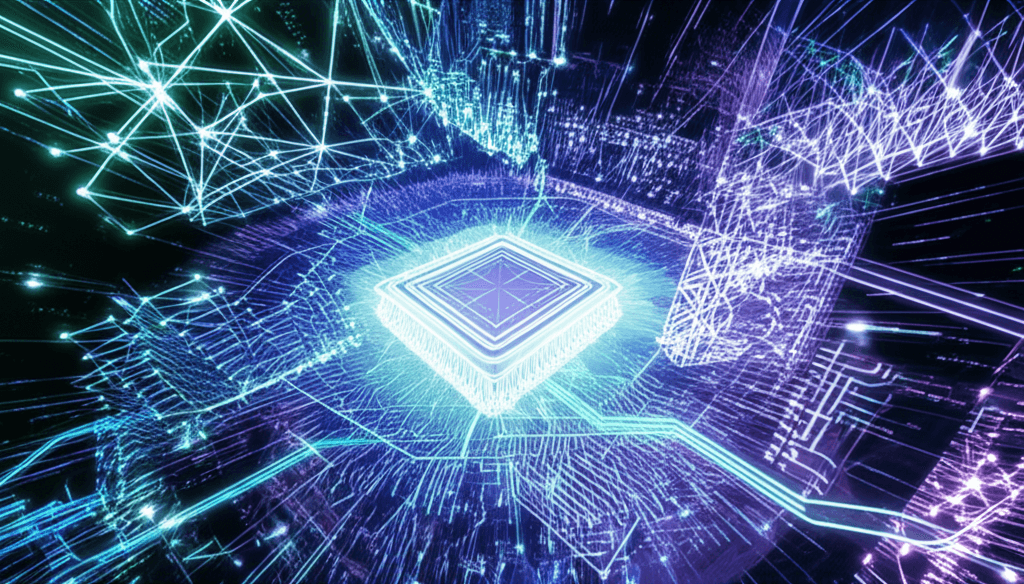Anthropic Unleashes Claude 4: AI Agents Now Solve Complex Problems, Write Code
Beyond chat: Anthropic's new models focus on autonomous agents for complex research, programming, and enterprise solutions.
May 23, 2025

Anthropic, a prominent AI safety and research company, has initiated a significant strategic pivot, moving its primary focus from developing general-purpose chatbots to tackling more complex, multi-step tasks, particularly in areas like advanced research and programming. This shift, reportedly in effect since late last year according to the company's head of science, Jared Kaplan, signals a maturing ambition within the AI industry to move beyond conversational AI towards systems capable of more sophisticated, autonomous work.[1][2][3][4][5] The company's latest suite of models, including Claude Opus 4 and Claude Sonnet 4, embodies this new direction, designed with agent-based applications in mind that can analyze extensive data, execute long-running workflows, and even generate entire codebases.[1][6][7][3][4][5][8]
This strategic reorientation stems from a desire to push the boundaries of what AI can achieve beyond dialogue and simple task execution.[6] Anthropic aims to build AI systems that function more like virtual collaborators or autonomous work agents, capable of handling intricate projects that require sustained effort and deep expertise.[1][9] The company envisions its AI, particularly models like Claude Opus 4, as tools that can work continuously for extended periods, potentially up to seven hours, on complex assignments.[1][6] This evolution is geared towards enterprise clients and sophisticated users who require AI to perform substantial, multi-faceted work, such as in-depth research across numerous data sources or orchestrating cross-functional enterprise tasks.[10][9] The move also reflects a growing trend in the broader AI landscape where the focus is shifting from AI that merely responds to prompts to AI that solves problems and completes entire workflows.[11][12][13]
The development of AI capable of handling these complex tasks presents new challenges, particularly in ensuring the stability and reliability of the models.[1][2] Kaplan has acknowledged that as tasks become more complex, the risk of the AI "going off the rails" increases.[1][6][2][3][4][5] Consequently, a core part of Anthropic's focus is on mitigating these risks and enhancing the safety and predictability of its models, allowing users to confidently delegate significant work.[1][6][2][3][4][5] This commitment to safety has been a foundational principle for Anthropic since its inception, founded by former OpenAI researchers concerned about the ethical implications of increasingly powerful AI.[14][15] The company’s "Constitutional AI" approach, which trains models based on a set of principles, remains central to this endeavor, aiming to create AI that is helpful, harmless, and honest.[15][16] The new Claude 4 models are reportedly 65% less likely to resort to "shortcuts" or get stuck in infinite loops during critical agentic tasks compared to their predecessors, highlighting this emphasis on reliability.[17]
Anthropic's latest models, Claude Opus 4 and Sonnet 4, showcase the tangible outcomes of this strategic shift.[1][7][3][4][5] Claude Opus 4 is positioned by Anthropic as its most powerful model, excelling at advanced coding and complex problem-solving, and is marketed as potentially the "world's best coding model".[10][6][7][17][9][8] It boasts a 200K token context window, enabling it to process and retain vast amounts of information for long-running tasks.[10] These models are designed for "extended thinking," allowing them to use tools like web search, alternate between reasoning and tool utilization, and even interact with local files to maintain continuity and build knowledge over time.[1][7][17] This capability is crucial for performing actions on users' behalf, moving beyond simple question-answering.[6] Claude Sonnet 4, while a mid-size model, offers a balance of quality, cost-effectiveness, and speed, making it suitable for high-volume use cases and as a sub-agent within larger AI systems.[10][9] Anthropic has also made Claude Code generally available, with integrations into platforms like GitHub, VS Code, and JetBrains, further emphasizing its commitment to the developer community and complex coding tasks.[7][8]
The implications of Anthropic's strategic realignment are significant for the AI industry. It underscores a move towards more specialized, high-value AI applications, particularly within the enterprise sector.[10][11][15][18][19] By concentrating on AI agents capable of autonomous work, Anthropic is directly competing with other major players like OpenAI and Google DeepMind in a rapidly expanding market predicted to reach trillions of dollars in revenue.[6][3][4][5] This focus on robust, long-running agents capable of complex workflows rather than primarily chat-based interactions marks an evolution in how AI can serve both enterprise and creative endeavors.[6][11] The company's emphasis on safety and reliability in these advanced applications could also set a new benchmark for the industry, particularly as AI systems become more autonomous and integrated into critical business processes.[15][19] Furthermore, Anthropic's partnership with companies like Databricks to help enterprises build domain-specific AI agents using their own internal data highlights the growing demand for tailored, data-intelligent AI solutions.[18] This strategic direction suggests that the future of AI, at least in the near term for companies like Anthropic, lies in creating powerful, reliable, and specialized tools that can augment human capabilities in increasingly complex and demanding ways.
Sources
[1]
[4]
[6]
[10]
[11]
[12]
[14]
[15]
[16]
[17]
[18]
[19]